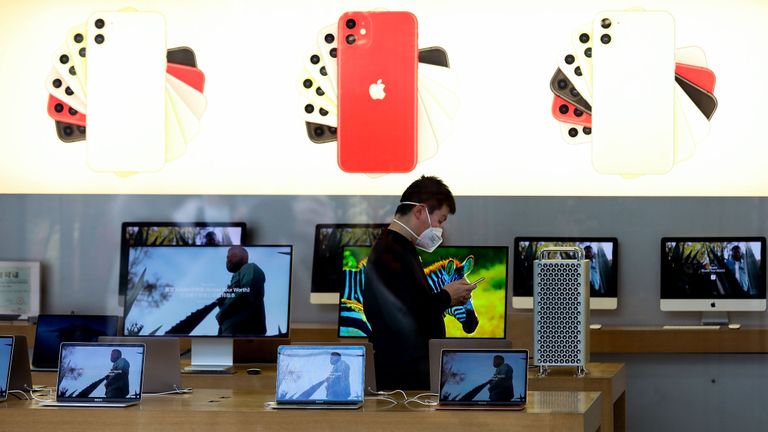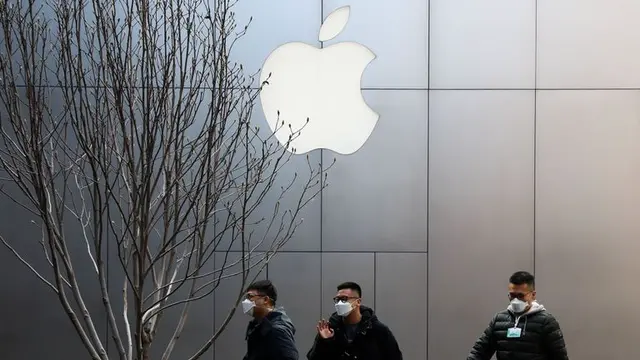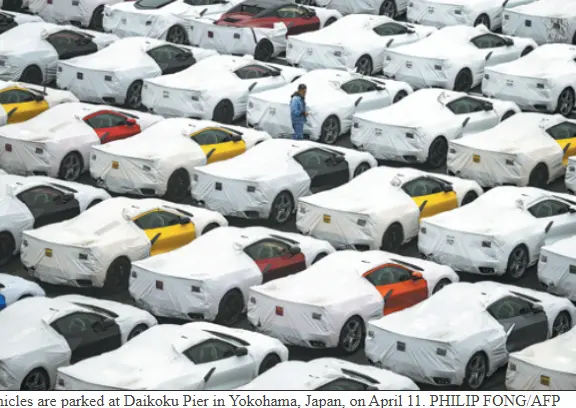Apple has warned it will not meet its financial targets due to the impact of coronavirus on production and sales in China.
The tech firm's second quarter ends on 30 March and it was expecting revenue for this period to be between $63bn and $67bn (£48bn and £51bn).
But the outbreak of COVID-19, the medical name for the respiratory illness caused by coronavirus, has resulted in a cut in iPhone production.
Apple's factories are all outside Hubei province, the centre of the outbreak. They have reopened but production is only slowly returning to normal.
"The health and well-being of every person who helps make these products possible is our paramount priority, and we are working in close consultation with our suppliers and public health experts as this ramp continues," the company said.
Sky News reported in January that
Apple's request to suppliers to produce 80 million iPhones
over the first half of 2020 could be delayed due to the virus outbreak.

Image:Many of Apple's 42 Chinese stores are closed or have only limited hours
The virus has also affected iPhone sales in China, which is Apple's third-largest retail market after the US and Europe.
Due to restrictions on movement intended to limit the spread of the virus, many of Apple's 42 Chinese stores are closed or operating only limited hours.
COVID-19 has infected more than 73,000 people, most of them in China. Some 1,800 people have died as a result.
Listen to "Is China's response to COVID-19 too little too late? | 14 February 2020" on Spreaker.
**:: Listen to the Daily podcast with Dermot Murnaghan on **
Apple Podcasts
**, Google Podcasts
, Spotify
, Spreaker
**
A number of other businesses have been affected by the virus, including InterContinental Hotels Group.
The company, which owns Holiday Inn and Crowne Plaza, said it had closed or partially closed 160 of its 470 hotels in China - its fastest-growing market - due to the virus.
Banking firm HSBC also said coronavirus had
caused "significant disruption" for its business
, especially in China and Hong Kong.
 简体中文
简体中文













